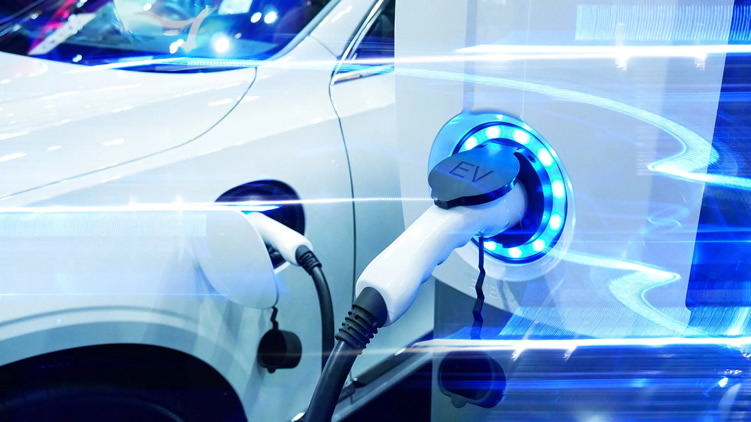Electrical Vehicle (EV) Charger Installations
Garden Grove, California
 Installing an Electric Car Charging Station
Installing an Electric Car Charging Station
The future is here: no gas pumps required and great technology at your fingertips. Having an electric car charging station at home will make your experience as an electric vehicle owner that much better.
Here is a quick rundown of our process and everything you need to know before getting an electric vehicle charging station installed in your home:
Compatibility and Other Devices
When installing a dedicated vehicle charger in your home, you can’t guarantee that there will be no issues with the existing circuits in your home. By charging your vehicles with exiting circuits, you risk potentially overloading the circuits and causing a breaker to trip. Because most people install their electric car charger in the garage and many have an outdoor refrigerator or freezer, there is a chance of losing the contents of those if the breaker is tripped. Having a dedicated circuit will eliminate that possibility.
Convenience
You can have the electric car charging station installed in the location that best fits your needs, eliminating the use of an extension cord and the risks associated with it. If the cord is not properly sized, for example, it can potentially overheat and cause a fire. The cord can also pose a tripping hazard.
Time
With the installation of an electric car charger in your home, you will get the fastest and most efficient charge. The use of a 220-volt outlet to charge your vehicle can get you back to full charge in a shorter amount of time. A 220-volt, 50-amp circuit with a 40-amp draw will charge the vehicle overnight, while a 110Volt 15Amp circuit with a 10Amp draw will only fully charge the electric vehicle in two to three days. In simple terms, power is voltage times current; hence 2X the voltage and 4X the current means 8X the charging power. And who doesn’t like more power?!
Tesla vs. NEMA
Here is the big question for Tesla owners: Is the Tesla charger the way to go? The Tesla charger does typically offer the maximum charging power with an adequate circuit (typically 40 to 72 amps, depending on vehicle), and it looks slick. The NEMA 14-50 outlet will typically get 32 to 40 amps, depending on the charging cable and vehicle. In most applications, both will get ~40 amps and will charge overnight. The NEMA 14-50 outlet can also be adapted to other electric vehicles. Overall, either will produce a dedicated fast charging result.
At Pure Air, our Orange County electricians are trained in installing electric car charging stations at homes and businesses. For questions about installation or to schedule an appointment in the greater Orange County area, give us a call at 714-537-9751.
Electrical Vehicle (EV) Charger Installations
Garden Grove, California
 Installing an Electric Car Charging Station
Installing an Electric Car Charging Station
The future is here: no gas pumps required and great technology at your fingertips. Having an electric car charging station at home will make your experience as an electric vehicle owner that much better.
Here is a quick rundown of our process and everything you need to know before getting an electric vehicle charging station installed in your home:
Compatibility and Other Devices
When installing a dedicated vehicle charger in your home, you can’t guarantee that there will be no issues with the existing circuits in your home. By charging your vehicles with exiting circuits, you risk potentially overloading the circuits and causing a breaker to trip. Because most people install their electric car charger in the garage and many have an outdoor refrigerator or freezer, there is a chance of losing the contents of those if the breaker is tripped. Having a dedicated circuit will eliminate that possibility.
Convenience
You can have the electric car charging station installed in the location that best fits your needs, eliminating the use of an extension cord and the risks associated with it. If the cord is not properly sized, for example, it can potentially overheat and cause a fire. The cord can also pose a tripping hazard.
Time
With the installation of an electric car charger in your home, you will get the fastest and most efficient charge. The use of a 220-volt outlet to charge your vehicle can get you back to full charge in a shorter amount of time. A 220-volt, 50-amp circuit with a 40-amp draw will charge the vehicle overnight, while a 110Volt 15Amp circuit with a 10Amp draw will only fully charge the electric vehicle in two to three days. In simple terms, power is voltage times current; hence 2X the voltage and 4X the current means 8X the charging power. And who doesn’t like more power?!
Tesla vs. NEMA
Here is the big question for Tesla owners: Is the Tesla charger the way to go? The Tesla charger does typically offer the maximum charging power with an adequate circuit (typically 40 to 72 amps, depending on vehicle), and it looks slick. The NEMA 14-50 outlet will typically get 32 to 40 amps, depending on the charging cable and vehicle. In most applications, both will get ~40 amps and will charge overnight. The NEMA 14-50 outlet can also be adapted to other electric vehicles. Overall, either will produce a dedicated fast charging result.
At Pure Air, our Orange County electricians are trained in installing electric car charging stations at homes and businesses. For questions about installation or to schedule an appointment in the greater Orange County area, give us a call at 714-537-9751.
Need Electrical Services or a NEW EV Home Charging System? We’re On Your Team!

Pure Air believes in doing right by our customers. Here are some of the ways we make our services stress-free:
Our Financing
Pure Air has financing available for qualified customers. Give our team a call to learn more about our financing offers and how to apply.
Our Guarantee & Warranty
Is there any peace of mind better than the kind that comes with a satisfaction guarantee? Pure Air offers a 100% satisfaction guarantee on all of our work. If you’re not satisfied with the quality of our service or AC installation work, let us know and we’ll work to make it right.
 Schedule A Service Appointment
Schedule A Service Appointment
Meet The Owners
 Tom Nguyen obtained his undergraduate degrees in both mechanical and electrical engineering at Old Dominion University in Norfolk, Virginia where he graduated summa cum laude and was valedictorian of his class. Tom went on to receive his graduate degree in nuclear engineering from the University of Virginia, then joined Los Alamos National Laboratories where he worked on various top-secret projects.
Tom Nguyen obtained his undergraduate degrees in both mechanical and electrical engineering at Old Dominion University in Norfolk, Virginia where he graduated summa cum laude and was valedictorian of his class. Tom went on to receive his graduate degree in nuclear engineering from the University of Virginia, then joined Los Alamos National Laboratories where he worked on various top-secret projects.





